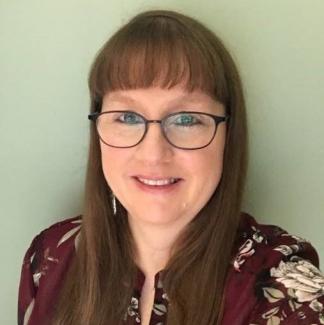LSAC Celebrates 10th Global Accessibility Awareness Day

May 20 marks the celebration of the 10th Global Accessibility Awareness Day (GAAD). GAAD was created to get everyone talking, thinking, and learning about digital accessibility and the more than one billion people who live with disabilities. The goal is to build awareness and commitment to digital inclusion, and to introduce the topic to those who are new to accessibility. GAAD was inspired by a single blog post by a web developer named Joe Devon. When an accessibility professional named Jennison Asuncion read the post, he contacted Devon to join forces, leverage their extensive networks, and together make GAAD a reality. GAAD launched in May 2012, and this year, the official GAAD website lists events all over the world, including Australia, Belgium, Brazil, Canada, Chile, Germany, India, Ireland, Italy, Japan, Mexico, Nigeria, Norway, Spain, Sweden, Switzerland, and the United States.
During the COVID-19 pandemic, many of us discovered the importance of digital access. Online shopping, remote work, and virtual teaching became the norm. At LSAC, we pivoted to host events for students, member law schools, and others virtually, and we began administering an online, live remote-proctored version of the LSAT. Between May 2020 and April 2021, candidates successfully completed more than 154,000 of these online LSAT assessments. And we will continue to provide the LSAT in an online format for another year in response to the expressed preferences of a substantial majority of test takers.
Commitment to digital access is part of LSAC’s mission of making a career in law accessible to all. Talking, thinking, and learning about the ways people with disabilities access and use technology and digital information helps us provide inclusive products and services. We plan our meetings and create our documents with accessibility in mind, and have learned best practices for format, color usage, and text alternatives. We create captions and transcripts for our videos and offer American Sign Language (ASL) interpretation at our events. We provide features for magnification and text spacing within our digital assessments. We strive to implement websites and technology products that are accessible to everyone, guided by learning how they are accessed and used and by standards such as the Web Content Accessibility Guidelines (WCAG).
At LSAC, we are eager to continue exploring ways to enhance the accessibility of our products and services through our work with disability associations and communities, and communications with our candidates and member schools. As I celebrate my first Global Accessibility Awareness Day here at LSAC, I am inspired by our commitment to ensuring that anyone with a disability is able to pursue their dream of a legal education.
According to Marc Maurer, past president of the National Federation of the Blind, “Access to information was, and is, the primary obstacle.” In an interview with LSAC Senior Vice President for Legal and Corporate Affairs, General Counsel, and Corporate Secretary Leanne Shank, Maurer added, “When I was coming up, there was a lot of uncertainty about whether you could take the LSAT at all as a blind person. As a result, I’ve never taken the test — although I’ve always wondered how I would do on it. Nowadays, not only can you take the LSAT, but LSAC has worked so hard to make it accessible for all students. Overall, the organization has become very committed to getting people from all walks of life into law school, and I’m delighted that it has.”
I am grateful to be a part of the efforts here at LSAC and around the world to spread awareness and advance digital access. Today, and every day, let’s keep talking, thinking, and learning together.

